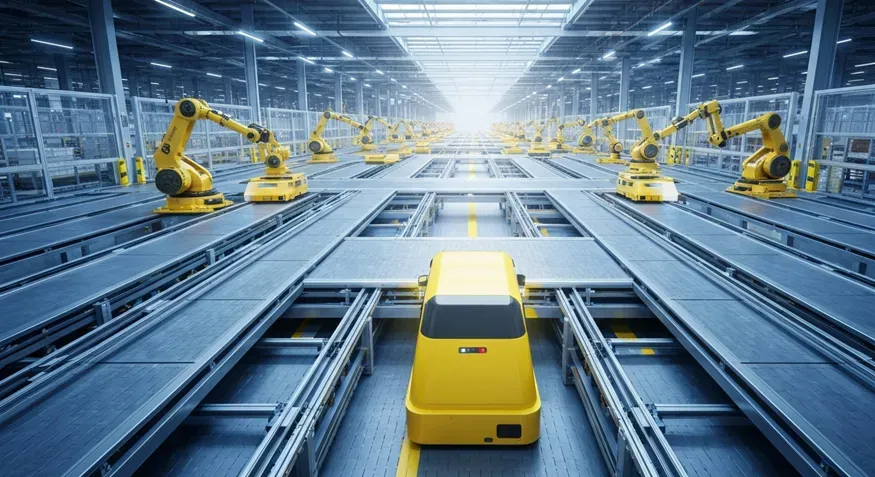Top Data Historian Vendors and Their Solutions for Industrial Automation
What is a Data Historian and How Does it Help with Industrial Automation?
A data historian is a software application that collects, stores, and analyzes data from industrial automation systems. It helps to improve the efficiency of industrial processes by providing real-time insights into the performance of machines and equipment. Data historians in industrial automation are used in a variety of industries such as manufacturing, energy, oil & gas, and healthcare. They provide valuable information about the performance of machines and equipment which can be used to optimize operations and reduce costs. Data historians also help to identify potential problems before they become serious issues. By using data historian software, companies can gain better visibility into their operations and make more informed decisions about their processes.

Exploring the Different Types of Data Historians & Their Benefits
Data historians are a type of software that stores and organizes data from industrial processes. They are used to track and analyze the performance of industrial systems, allowing for better decision-making and improved efficiency. Data historians can be used in a variety of industries, including manufacturing, energy, healthcare, and more.
Data historian architecture is designed to store large amounts of data in an organized manner. This allows for easy access to the data when needed. Additionally, data historians can be used to compare different sets of data over time or across different locations. This helps organizations identify trends and make informed decisions about their operations.
The best data historian software will depend on the specific needs of an organization. Different types of software offer different features such as scalability, security, analytics capabilities, and more. It is important to research the various options available before making a decision on which one is best for your organization's needs.
What to Look for When Choosing a Data Historian Vendor
When selecting a data historian vendor for industrial organizations it is vital to consider the right factors and make the best choice that suits their needs. The features of the data historian, its scalability, flexibility, and reliability are essential parameters which should be thoroughly reviewed before making any decision. Furthermore, understanding how it integrates with existing systems and its compatibility with other equipment are also important considerations in order to ensure that all operations run smoothly and efficiently. A data historian is a specialized software program used for collecting, storing, and organizing large amounts of data from various sources, such as Supervisory Control And Data Acquisition (SCADA) systems, Programmable Logic Controllers (PLCs), and other types of industrial automation equipment. It also allows users to easily access and analyze the data to gain valuable insights into their business operations. With its powerful data access capabilities, it allows users to easily search and access vast amounts of historical data in a fast and efficient manner. This makes it ideal for businesses that need to have quick and easy access to large datasets in order to make informed decisions.
When selecting a vendor for your data historian needs, there are several factors to consider.
These include:
- Type of historian software you need (open source or proprietary), the
- Scalability of the system
- Ability to integrate with existing systems
- Security features
- Cost-effectiveness
- Support services
- Training
- Maintenance
By taking all these factors into account when selecting a vendor for your industrial historian software needs, you can ensure that you get the best possible solution for your organization's needs.
Finding the Right Data Historian Vendor for Your Industrial Automation Needs
Data historians are a key component of industrial automation systems, enabling the storage and analysis of data from various sources. They allow for the collection and retention of historical data in order to analyze trends, diagnose faults, optimize operations, and improve efficiency. Furthermore, they provide detailed visualization capabilities that assist engineers in understanding complex relationships between processes and systems. Choosing the right vendor for your data historian needs is essential if you want to receive the best possible service and have a successful experience with your data historian. It is important to take the time to thoroughly research potential vendors, compare their features, and evaluate their customer support in order to find one that best meets your requirements.
Empowered Automation is a great resource for businesses looking for the right vendor to meet their industrial automation needs. With its expansive selection of vendors, features, and options, you can easily find the perfect choice to suit your precise requirements. From advanced monitoring and control systems to automated assembly machines and more, there's something for everyone in their comprehensive catalog. Our team of experts has extensive experience in the field of data historians and as such can aid you in making an informed decision as to which vendor is best suited to meet the needs of your business. We understand how important it is for businesses to make smart decisions when it comes to the tools and technologies they use, and are here to provide you with the necessary information and guidance that will enable you to do so. At Data Historian Solutions, we are committed to providing you with all the necessary information and guidance you need in order to make an informed decision about your data historian investment.
We strive to ensure that you get the best return on your investment by providing a comprehensive suite of features and services that give you complete control over how your data is recorded, stored, and accessed.



